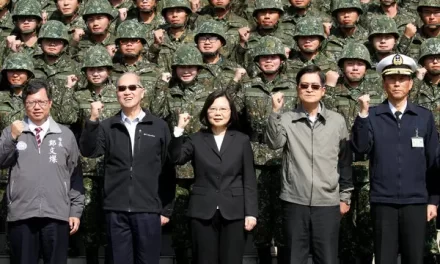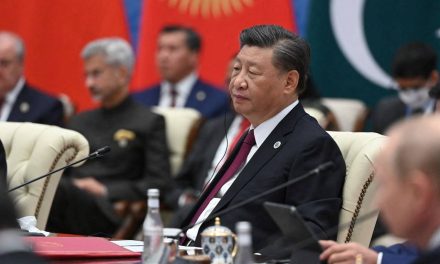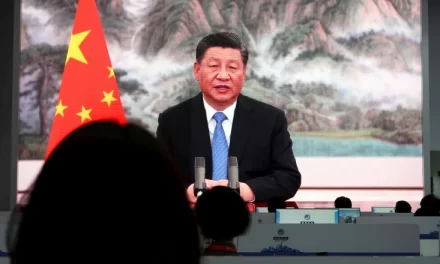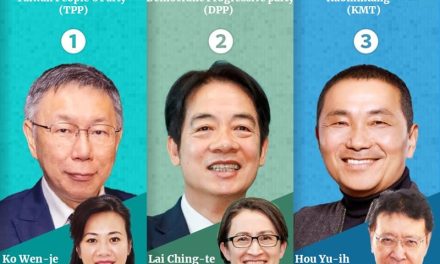BY BRADLEY A. THAYER AND LIANCHAO HAN
The popular unrest in the past few weeks in Hong Kong is one of the world’s major human rights issues today. The weeks-long, record-breaking protest against proposed amendments to the extradition laws, to make it easier to extradite accused individuals to China, indicates the irreconcilable tension between Beijing and the Hong Kong people. It may mark the end of Hong Kong’s “one country, two systems” framework and the start of a protracted war between freedom and dictatorship.
The implications of the protests are even more salient than the drama of the unrest. There are several consequences for Hong Kong and the international community:
First, the proposed amendments to extradition laws signal agreement between Hong Kong’s Chief Executive Carrie Lam and the Chinese Communist Party (CCP) chief Xi Jinping to weaponize the law. The aim is to firmly control Hong Kong and ensure the CCP’s regime security. This profoundly affects the Hong Kong people’s political and civil rights, as well as the future of Hong Kong. In fact, amending the extradition laws is only an excuse to carry out this campaign.
Although the Hong Kong government uses Taiwan’s request of surrendering a Hong Kong suspect in a Taiwan homicide case as a pretext, the proposed changes open the door to gross human rights violations. It would allow the Hong Kong government to handle extradition requests on a case-by-case basis and from jurisdictions with which there were no agreements, such as China. It would enable Lam’s government to repatriate secretly accused individuals without the legislature’s oversight. Naturally, this is worrisome not only because anyone in Hong Kong could be “legally” taken to the party-state to be tried without due process, but also because it undermines Hong Kong’s rule of law.
Second, Beijing now sees the Hong Kong democracy movement as a security threat and will move to crush it. This is reflected in the aggressive, rapid response by Hong Kong police who fired rubber bullets, tear gas and bean bag rounds, and used batons and pepper spray. Beijing and the Hong Kong government determined the protest to be a “riot” after protesters and the police clashed on June 12. Those charged with rioting could face a decade behind bars. All of these measures are a clear departure from how the 2014 Occupy Central was handled, and demonstrates the implementation of Xi’s zero tolerance policy towards civil resistance, large or small.
Third, the repressive acts expose the CCP’s willingness to breach China’s promises made to international community, the United Kingdom and the people of Hong Kong. Particularly, the requirements to maintain Hong Kong’s autonomy, its independent executive, legislative and judicial powers; to allow the Hong Kong people to rule Hong Kong; and to keep “one country, two systems.” Violating the agreement with the UK reveals absence of respect for the Sino-British Joint Declaration signed in 1984.
Fourth, coming on the heels of the 30th anniversary of the Tiananmen Massacre, the protests manifested a palpable desire of Hong Kong citizens to preserve their rights. The fact that they faced down their government deserves to be applauded by supporters of democracy. Since 2013, when Xi Jinping came to power, he has begun to quietly alter the status of Hong Kong, including modification of “Hong Kong people ruling Hong Kong” into “Hong Kong people administering Hong Kong” and introducing China’s constitution to apply in Hong Kong.
Xi has set a “red line” for Hong Kong: He absolutely will not allow “activity that jeopardizes the sovereign security of China, challenges CCP authority, or uses Hong Kong to infiltrate and undermine the mainland.” As a consequence, any Hong Kongers’ criticism of the CCP could have disastrous results for the individuals.
Fifth, amending the extradition laws is another step toward making Hong Kong an integrated part of the mainland. It is one issue among many that are deteriorating Hong Kong’s independent status, as guaranteed by the 1984 agreement. The steady incorporation of Hong Kong into China has been arrested for the moment, but it will require vigilance and willingness to protest once again when, inevitably, the government of Hong Kong acts as Beijing’s tool. And Hong Kong’s people will require far greater support from the international community.
Sixth, Hong Kong is the canary in the coal mine for Taiwan. The abuses that China conducts against Hong Kong are stern reminders for Taiwan that Beijing is willing to violate agreements to safeguard human rights. What Xi is doing through a pliable government today in Hong Kong could be done tomorrow in Taiwan.
The passivity of the international response is alarming. China regularly commits human rights abuses against its citizens, and now is doing so against the Hong Kongers. Yet, within the international community, China pays little cost for human rights abuses that should compel a massive, sustained campaign by other states, human rights organizations, the United Nations, global media, and others.
Erosion of the rights of Hong Kongers will continue. The effort has suffered a short-term reverse because of the brave acts of its people. But Xi will not tolerate dissent, democracy, or any challenge to his regime. The protests revealed, once again, the degree to which Communist China depends upon repression to rule. This does not augur well for global peace and stability.
This article first appeared in The Hill on 06/23/19 1:00 PM ET
























